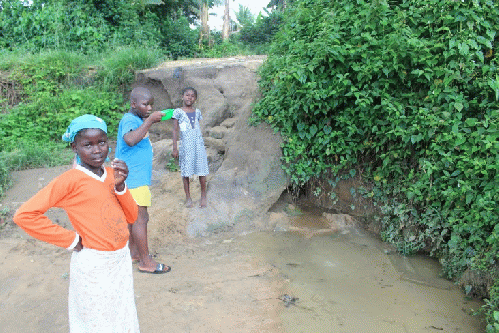Numerous factors are pointing towards African development picking up, with several economic hotspots across the continent. But industries are coming out of the ground, outside any form of concerted environmental plan. Without such agreements, neither present nor in the foreseeable future, how can Africa make its industrial revolution sustainable?
The developed world is finally taking care of its environment, after centuries of happy-go-lucky industrialization. According to the Climate Policy watcher "Over the last few decades, there have been several notable anthropogenic environmental disasters. These have made the public more aware of environmental damage; sometimes permanent.". Despite the slight American rollback of the current administration, the environment is still high on the list of priorities, for all the governments of developed nations. But it is only thanks to the wealth of these countries, that such massive efforts are capable. This gives a hopeful perspective for the rest of the world: the developing world isn't yet, but its newly acquired will soon enable it to do so. Author Dora Marinova writes "Recently however with the country's 12th Five-Year Plan the government adjusted China's national development strategy towards addressing climate change and achieving a low-carbon economy which considers the global impact from the country's economic development. The foundation for developing a low-carbon economy in China lays in enhancing its environmental education system and overall environmental awareness." But Africa has neither the environmental performance, nor the economic resources to achieve it, so far.
Africa's deadlock comes from the fact that, should the continent further industrialize, it will increase pollution, which will hamper further development. Nigeria provides a sad, yet potent, example of this trend. The most populated country in Africa also stands out with the abundance of its resources. According to Voa News Heather Murdoch, "Although Nigeria is Africa's biggest oil producer, it imports most of the fuel it consumes. Nigeria also has the world's seventh-largest natural gas reserves, even though it exports far more than it uses. With so many energy resources available in Nigeria, it is unjust that about half of its citizens have no access to power, activists say.". Alas, the West-African country lists among the poorest per capita in the world, in great part due to environmental issues, despite the country possessing the resources necessary for shared wealth. S. Omonfonmwan, contributor to Human Ecology, says "Urbanization, deforestation, desertification, over population and all kinds of pollution [...] occur as the people attempt to acquire their seemingly endless desire for food, shelter, recreation and infrastructural facilities. Though these wants and desires contribute to the development of the country, the unwise use of the land and its resources produce negative impacts on the environment. Federal Environmental Protection Agency (FEPA) was established to control the Nigerian Environment, its resources exploitation and management. But field observation revealed that environmental degradation is growing at a rate worse than the pre-FEPA period." With the current tension on air and water resources, only environmentally performant systems will make the industrial boom sustainable.
Power must come from water, wind and the sun, not from fossil fuel. Water must be treated locally, by stations which can move with populations, lest expensive networks be put in place only to be obsolete ten years later. Patrick Couzinet, director of Veolia's African Division says "Africa must deploy technology made by Africans, for Africans. Northern systems simply are not adapted to the specific parameters of this continent". A south African Veolia plant is currently producing mobile water-treatment plants, which can be purchased, installed and operated locally by populations, without damaging their immediate our downstream environment. Also, humidity-recuperating systems are currently being deployed, which turn fog and humidity into drinkable water. Verge reporter Sandeep Ravindran says "Otto Klemm, a professor of climatology at the University of Munster, has tested both a tiny fog collector that's a little smaller than a matchbook, and a larger model that's a little smaller than a license plate, and published his results in September 2014. The larger model collected about a tablespoon's worth, or about 15 mL of water, in 36 minutes in lab tests. That makes it several hundred times more efficient at collecting water than individual desert beetles, grasses, or metal wires, Heng says. The larger version can collect both fog and dew over short periods of time and on a small scale so it could also be developed into a portable model." In the African past, so many taxes have been levied for one purpose, and then sidetracked for another, or outright embezzled, that citizens are unwilling to build collectively, on a national level. The additional advantage of small off-grid systems is that they can be acquired my small, tight-knitted communities, and don't depend on government spending.
According to Samuel Agyei-Mensah, "Industrial expansion is also a major contributor to the deteriorating level of air quality in these cities. Consideration should then be made to the environmental issues associated with the growing demand for natural resources, such as mineral and biofuels." If Northern solutions are implemented, while suitable support networks are not in place, the vicious circle will resume: industrialization will corrupt resources, which will, in return, stymie development.





